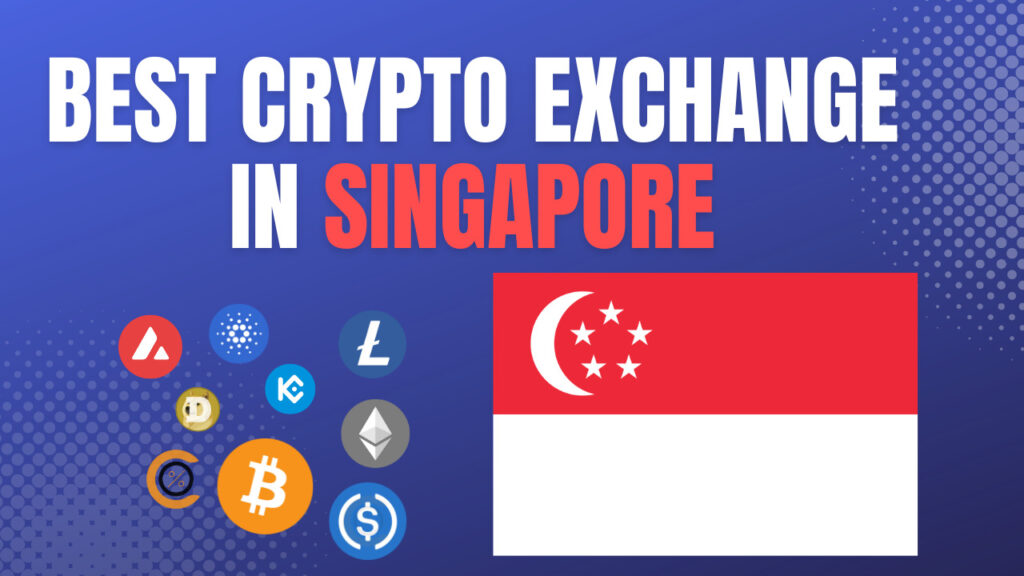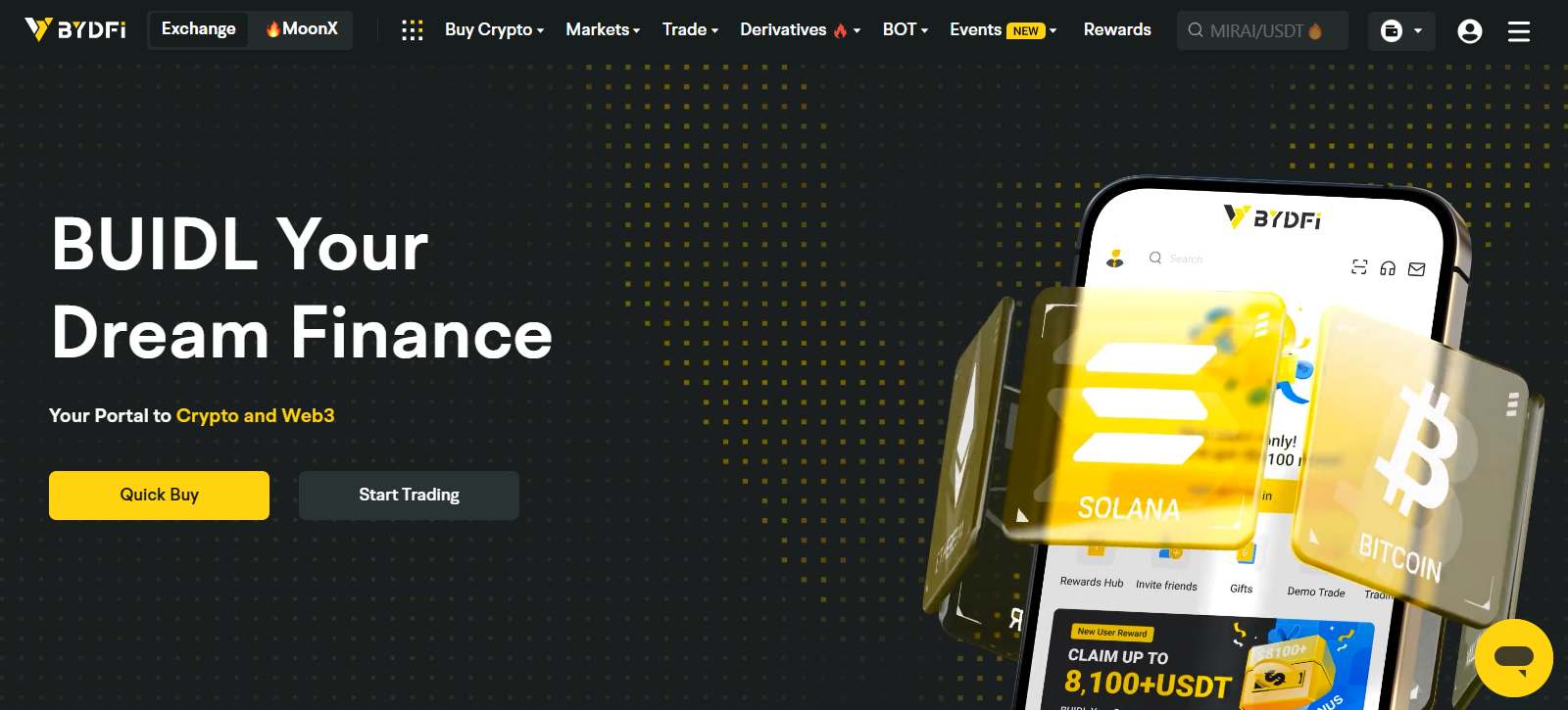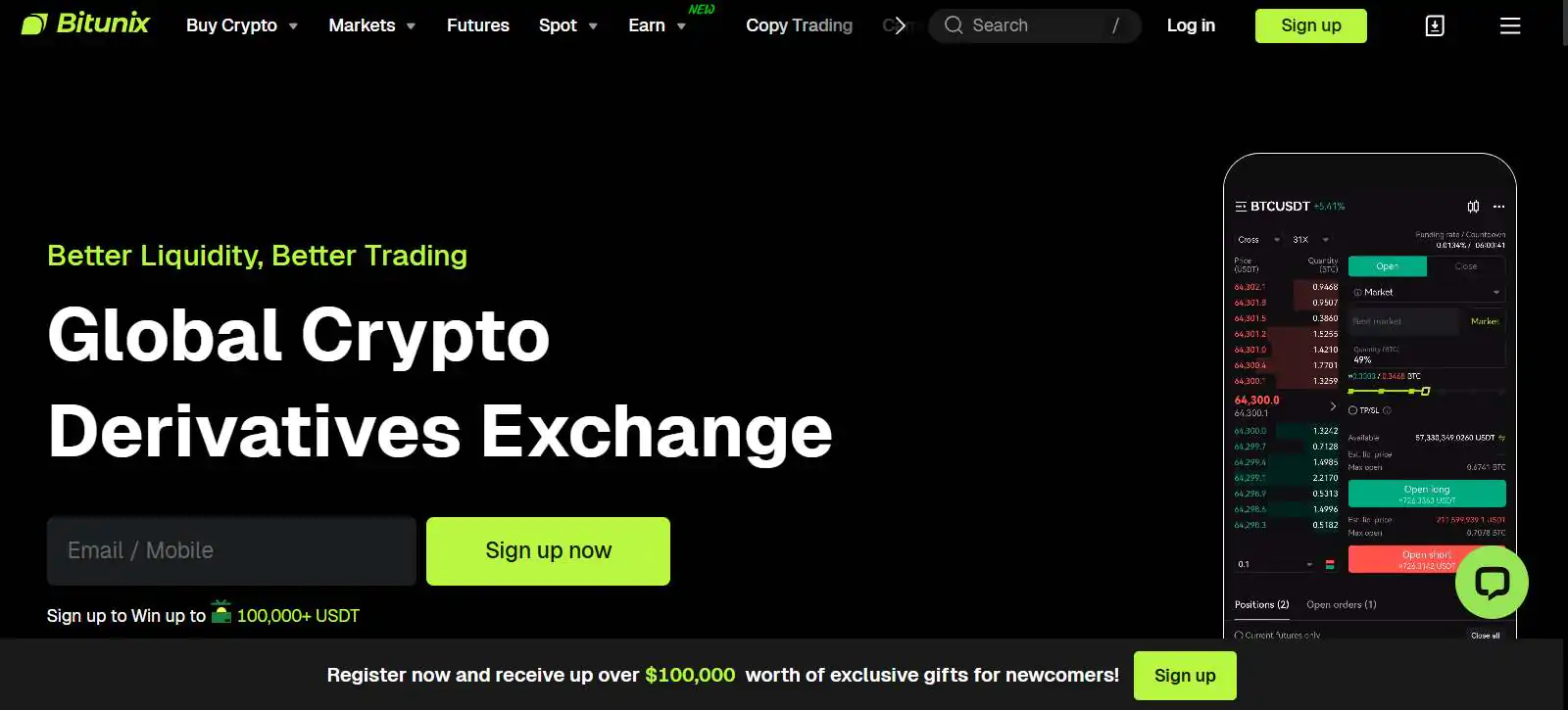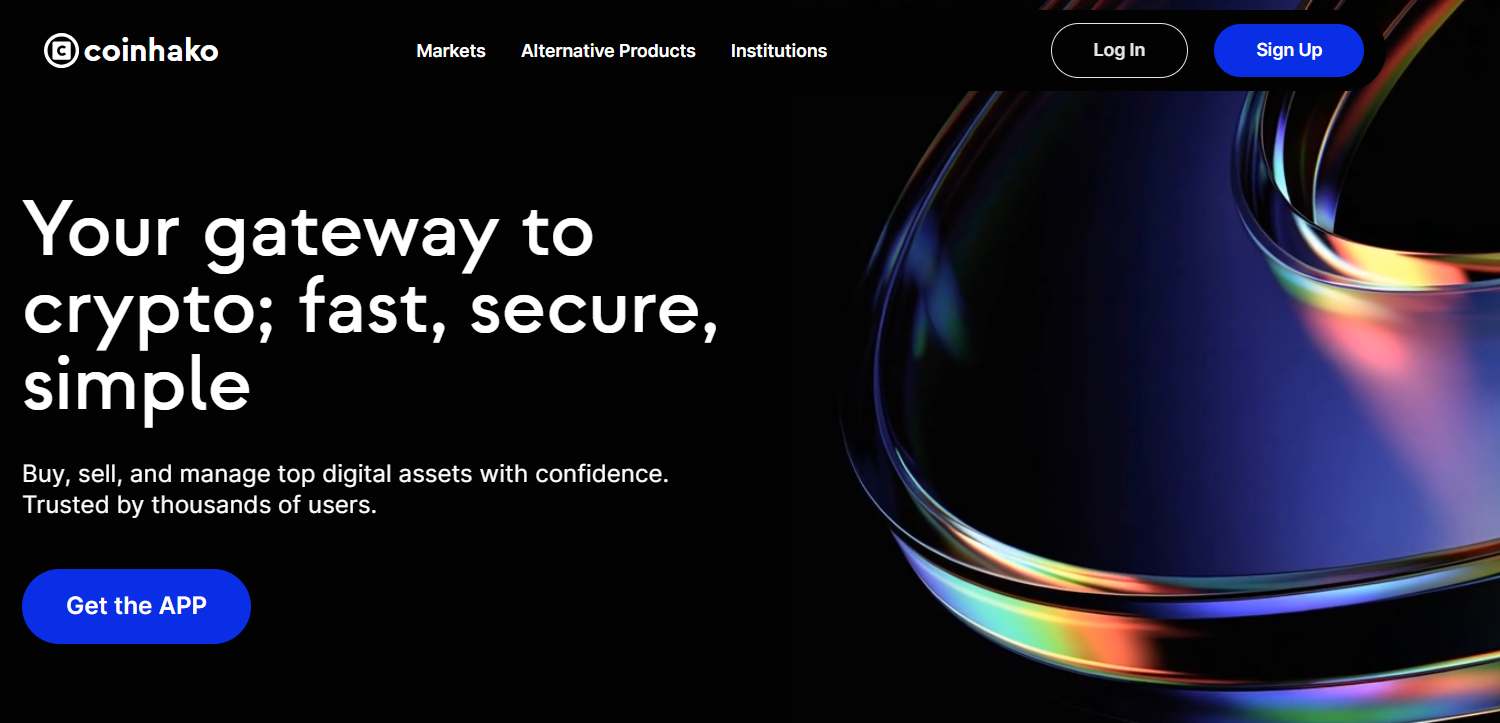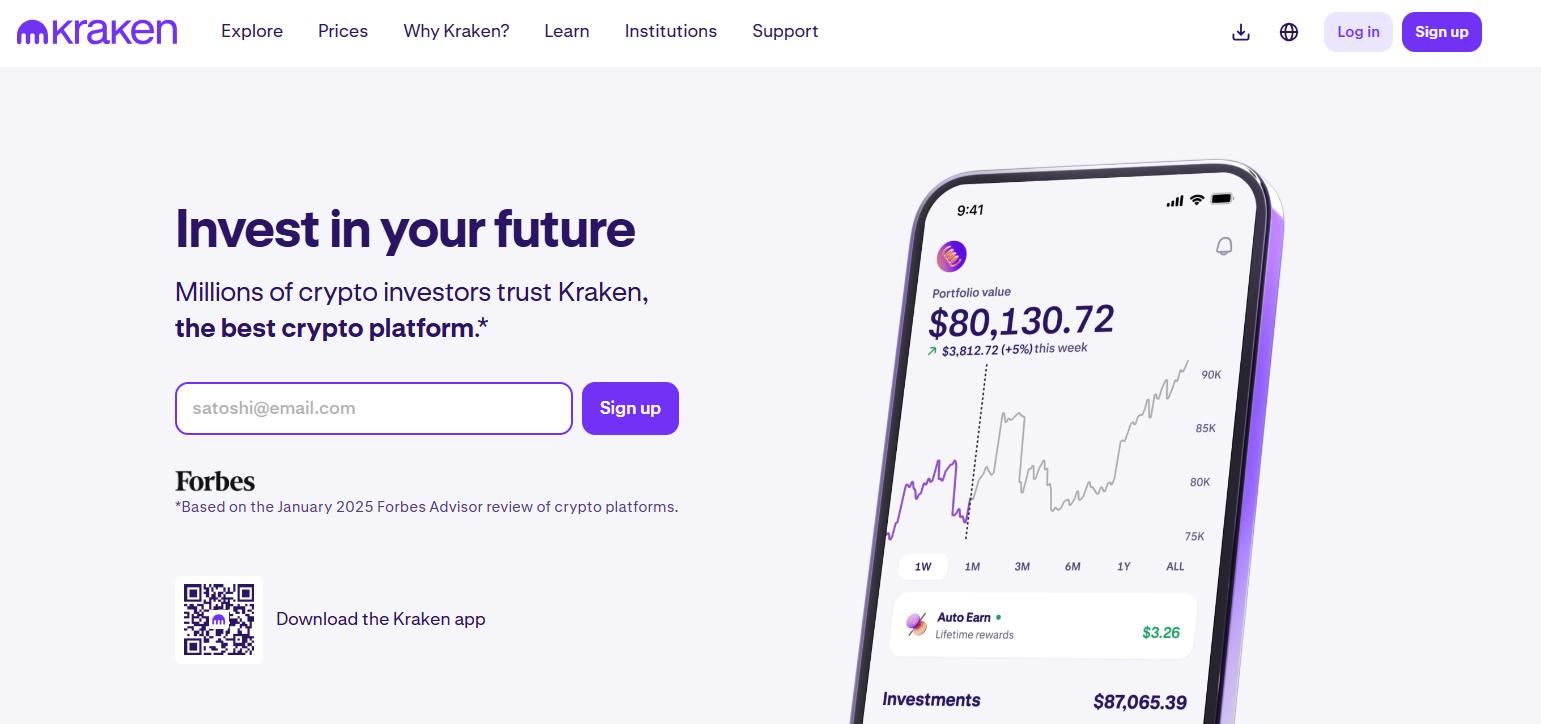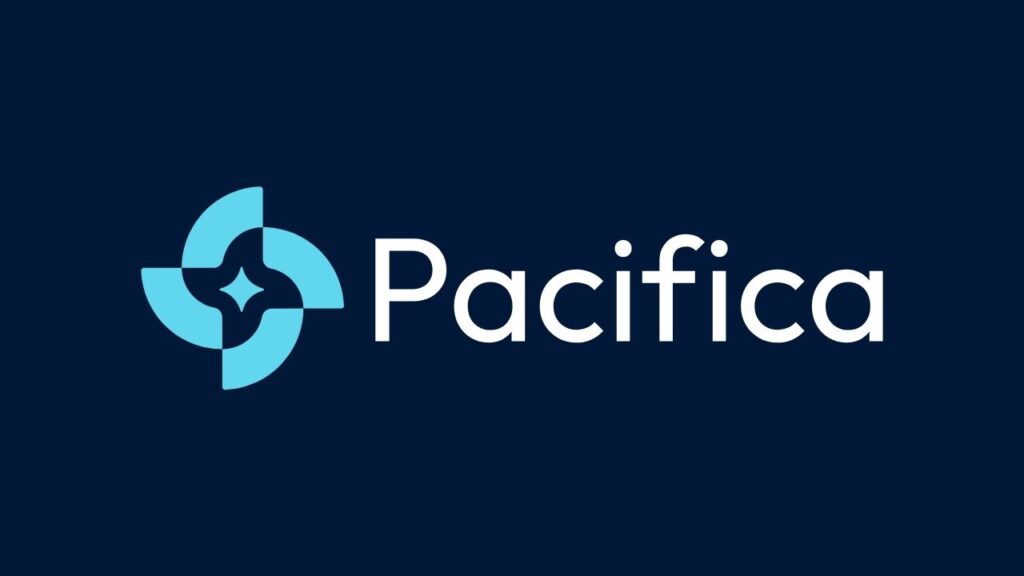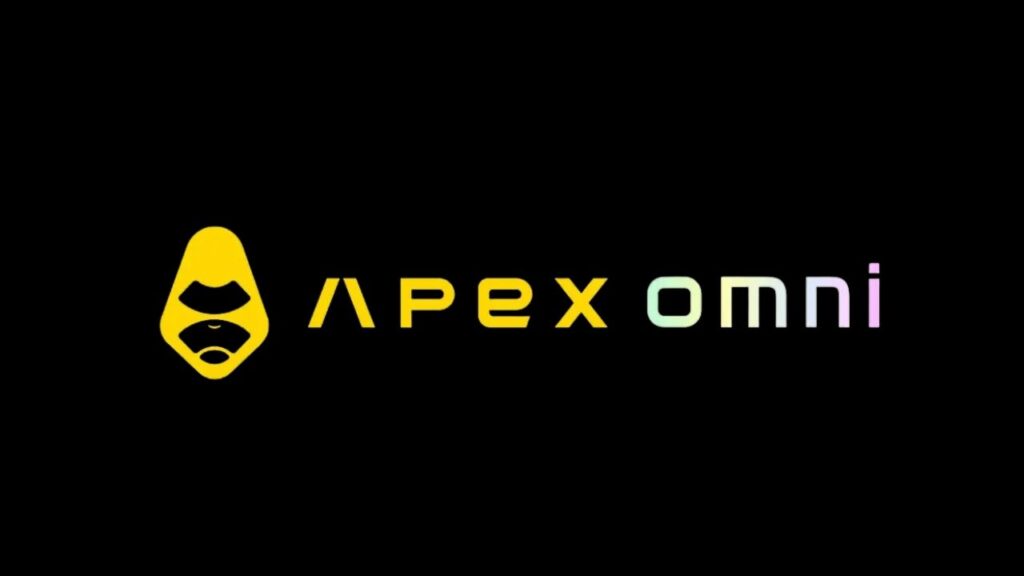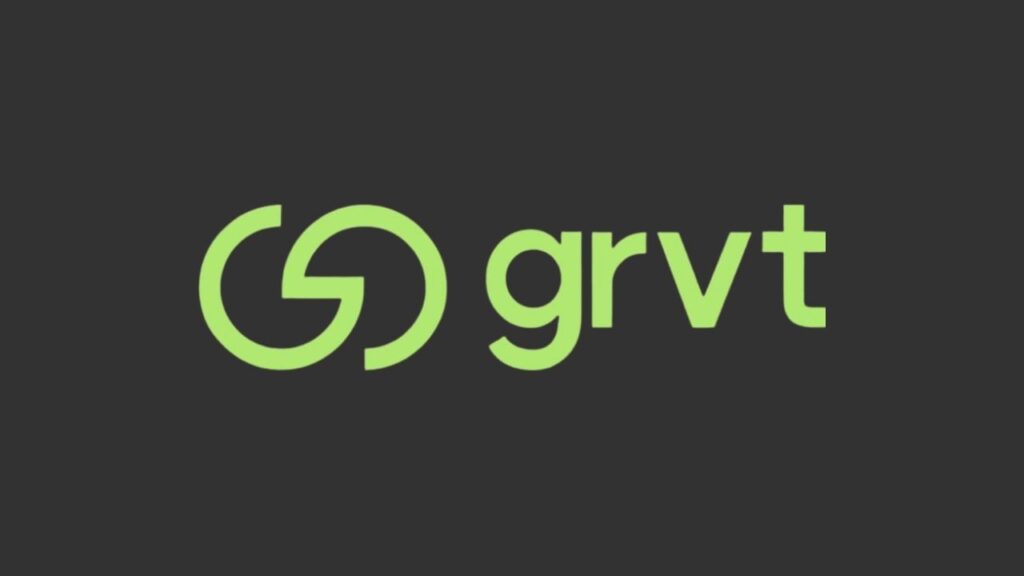- •Only MAS-licensed or approved exchanges can legally serve users in Singapore under the Payment Services Act.
- •Top platforms offer SGD onramps via PayNow, FAST, and bank transfers, plus tax reporting tools for IRAS compliance.
- •Singaporean users expect secure platforms with staking, bot trading, and clean interfaces, not just low fees.
Singapore’s crypto market is shaped by a well-informed, regulation-conscious user base. Traders here aren’t just buying tokens, they’re comparing licensing status, evaluating SGD on-ramp options, and asking whether a platform offers tools like staking, copy trading, or tax reporting. With MAS actively overseeing compliance, using an unregulated exchange isn’t just a risk, it’s a red flag. That’s why this guide doesn’t just list platforms; it breaks down which crypto exchanges Singapore users can rely on for security, functionality, and long-term use. From UI design to KYC tiers, every detail matters when your audience knows what to look for.
Top Crypto Platforms for Trading in Singapore
The exchanges below were selected based on MAS licensing status, SGD deposit support, trading features, and overall suitability for Singapore-based users. Each platform serves a different user type, from first-time investors to high-frequency traders, with a focus on security, transparency, and advanced tools.
- BYDFi – Best for high-leverage, no-KYC trading
- Bitunix – Best for derivatives with fast onboarding
- BloFin – Best all-in-one platform with automation tools
- Coinbase – Best MAS-licensed exchange for passive investors
- Coinhako – Best exchange for beginners in Singapore
- Gemini – Best for security-focused, institutional users
- Kraken – Best for manual traders seeking deep liquidity
| Exchange | Cryptos | Spot Fees | Futures Fees | Max Leverage | Bonus | KYC |
|---|---|---|---|---|---|---|
| 1. BYDFi | 801+ | 0.00% / 0.10% | 0.02% / 0.06% | 200x | $300 | No |
| 2. Bitunix | 541+ | 0.10% / 0.10% | 0.02% / 0.06% | 125x | $5,500 | No |
| 3. BloFin | 564+ | 0.10% / 0.10% | 0.02% / 0.06% | 150x | $10,000 | No |
| 4. Coinbase | 297+ | 0.40% / 0.60% | 0.05% / 0.05% | 10x | None | Yes |
| 5. Coinhako | 132+ | 0.60% / 0.60% | None | None | None | Yes |
| 6. Gemini | 77+ | 0.25% / 0.35% | 0.02% / 0.07% | 20x | None | Yes |
| 7. Kraken | 516+ | 0.16% / 0.26% | 0.02% / 0.05% | 50x | None | Yes |
1. BYDFi
BYDFi is a Singapore-based exchange offering advanced tools, legal compliance, and high-speed derivatives trading. It operates under a Capital Markets Services (CMS) licence from the Monetary Authority of Singapore, making it one of the few fully compliant platforms legally accessible to residents.
The exchange supports 801+ spot cryptocurrencies and over 421 futures contracts with leverage up to 200x. Traders can also automate strategies through grid and martingale trading bots or use copy trading to follow experienced users. BYDFi’s MoonX feature adds on-chain trading for users seeking transparency and advanced order routing.
Although fiat withdrawals aren’t supported, BYDFi allows SGD deposits through MAS-compliant channels like bank transfers, SEPA, Alchemy Pay, Transak, and Apple/Google Pay. With zero spot maker fees and deep futures liquidity ($5.6B daily), it appeals to traders seeking cost efficiency and advanced tools in one platform.
The platform runs without mandatory KYC, offering up to 1 BTC in daily withdrawals. However, users concerned with security or tax compliance should opt for identity verification, especially since Singapore regulates crypto as a taxable asset.
If you want to explore more about the platform’s features, you can read our full BYDFi review.
BYDFi Features:
- Supported Cryptocurrencies: 801+
- Futures Contracts: 421+
- Max Leverage: 200x
- Spot Trading Fees: 0.00% maker / 0.10% taker
- Futures Trading Fees: 0.02% maker / 0.06% taker
- KYC:Not required
- Deposits: SGD deposits via Apple Pay, SEPA, Transak, Alchemy Pay, and more
BYDFi Pros and Cons
| 👍 BYDFi Pros | 👎 BYDFi Cons |
|---|---|
| ✅ 801+ Cryptos supported | ❌ No staking, lending, or NFT products |
| ✅ Features copy trading, grid bots, demo accounts, and MoonX memecoin tool | ❌ Lacks advanced order types |
| ✅ Low fees | |
| ✅ Up to 200x leverage | |
| ✅ Registered with U.S. FinCEN and Canada FINTRAC | |
| ✅ Free demo account |
2. Bitunix
Bitunix is a high-volume crypto derivatives platform launched in 2022 and currently headquartered in Dubai. The exchange expanded its fiat access in early 2025, including SGD availability via Onramper.
The platform supports 541+ cryptocurrencies and 400+ perpetual contracts with leverage up to 125x. Spot and futures trading is accessible without identity verification, with daily withdrawal limits up to $500,000 for unverified users. The platform also includes a “Buy Low, Sell High” trading bot, copy trading, and advanced order types such as Trailing Stop, GTC, IOC, and multiple TP/SL settings.
Bitunix processes over $6.4 billion in daily futures volume, but its spot volume remains comparatively lower. For risk-aware users, the platform now offers a $5 million insurance pool and recently partnered with Salus for independent security auditing. The interface includes TradingView Ultra integration, allowing full mobile charting access for advanced analysis.
Users can manage assets via CoinStats portfolio sync, and the platform’s UI is optimized for mobile-first trading. The lack of mandatory KYC, combined with layered security features, positions Bitunix as a practical choice for traders who prioritize speed, access, and anonymity.
To understand the platform in more detail, you can visit our full Bitunix review.
Bitunix Features:
- Supported Cryptocurrencies: 541+
- Futures Contracts: 400+
- Max Leverage: 125x
- Spot Fees: 0.10% maker / 0.10% taker
- Futures Fees: 0.020% maker / 0.060% taker
- KYC: Not required
- Deposits: Crypto, credit/debit card, Apple Pay, Volet, bank transfer
Bitunix Pros and Cons
| 👍 Pros | 👎 Cons |
|---|---|
| ✅ No-KYC with $500K daily withdrawal limit | ❌ Not regulated by major authorities |
| ✅ Up to 125x leverage | ❌ Smaller user base than top exchanges |
| ✅ User friendly | ❌ Not available in China |
| ✅ Easy fiat deposits (card, bank, Apple Pay) | |
| ✅ High liquidity ($6.4B+ daily volume) |
3. BloFin
BloFin is a derivatives-focused exchange launched in 2019 and headquartered in the Cayman Islands. It supports 564+ spot cryptocurrencies and 440+ futures contracts, offering up to 150x leverage. With a daily futures volume of $9.73 billion, the platform provides deep liquidity for advanced traders.
Users can trade without verification, with a $20,000 daily withdrawal limit on no-KYC accounts. Higher tiers allow up to $2 million per day. The platform includes copy trading, demo mode, and a variety of automation tools like Signal Bot, Grid Bot, and TWAP Bot. Spot and futures fees are transparent, starting from 0.10% spot taker and 0.02% futures maker.
Fiat access is available via Apple Pay, Google Pay, credit cards, SEPA, and several processors like Alchemy Pay and Simplex. Apple Pay support, added in July 2025, improves mobile on-ramps for SGD users. The platform has also applied for a MAS licence and was a sponsor at TOKEN2049 Singapore, showing alignment with the local ecosystem.
BloFin integrates Fireblocks custody, ISO 27001 security standards, and a modern UI. With deep liquidity, automation tools, and flexible verification limits, it fits the needs of both institutional and retail traders.
If you want to explore the platform in detail, you can visit our full BloFin review.
BloFin Features:
- Supported Cryptocurrencies: 564+
- Futures Contracts: 440+
- Max Leverage: 150x
- Spot Trading Fees: 0.10% maker / 0.10% taker
- Futures Trading Fees: 0.020% maker / 0.060% taker
- KYC: Not required
- Deposits: Crypto, Apple Pay, Google Pay, Simplex, Alchemy Pay, Neteller
BloFin Pros and Cons
| 👍 BloFin Pros | 👎 BloFin Cons |
|---|---|
| ✅ No-KYC exchange with global access (incl. US, UK, Canada) | ❌ Relatively new |
| ✅ Supports 564+ spot cryptocurrencies and 440+ futures contracts | ❌ Fiat withdrawals are not supported |
| ✅ Up to 150x leverage on futures | ❌ Liquidity depth is moderate |
| ✅ Bot trading supported | |
| ✅ Full Proof of Reserves | |
| ✅ Customer support is available 24/7 via live chat and email |
4. Coinbase
Coinbase was founded in 2012 by Brian Armstrong and is headquartered in the United States. It is one of the most established platforms globally, with over 108 million users and strong regulatory credentials. The platform supports 297 spot cryptocurrencies and 164 futures contracts, with futures leverage capped at 10x. Coinbase is fully regulated and holds a Major Payment Institution licence from the Monetary Authority of Singapore.
Spot trading fees are 0.40% for makers and 0.60% for takers, which are higher than average. Futures fees are flat at 0.05% for both maker and taker. While the platform is beginner-friendly and secure, it lacks features like copy trading, bot trading, and margin support. However, it offers staking, demo trading, and a well-designed interface tailored for retail investors.
Coinbase has introduced SingPass onboarding and SGD onramps, making registration and deposits easier for Singapore-based users. Funding options include PayNow, FAST bank transfers, Apple Pay, and standard crypto deposits. Fiat support also includes USD, EUR, and GBP, but withdrawals are crypto-only. The exchange does not offer P2P, options, or leveraged spot trading.
Its structure prioritizes regulatory compliance and ease of use, with mandatory KYC for all accounts. Coinbase remains a practical option for retail investors focused on stability over frequent trading.
We’ve analyzed Coinbase, read the full Coinbase review now.
Coinbase Features:
- Supported Cryptocurrencies: 297+
- Futures Contracts: 164+
- Max Leverage: 10x
- Spot Trading Fees: 0.40% maker / 0.60% taker
- Futures Trading Fees: 0.05% maker / 0.05% taker
- KYC: KYC required
- Deposits: Crypto, PayNow, FAST, Apple Pay, credit/debit cards
Coinbase Pros and Cons
| 👍 Coinbase Pros | 👎 Coinbase Cons |
|---|---|
| ✅ Reputable exchange | ❌ High trading fees |
| ✅ Very secure crypto trading platform | ❌ No Futures |
| ✅ Very beginner-friendly | ❌ Lacks advanced trading features |
| ✅ Highly regulated | ❌ No live chat support |
| ✅ Euro deposits supported |
5. Coinhako
Coinhako was founded in 2014 by Yusho Liu and Gerry Eng and is based in Singapore. It is one of the few platforms holding a Major Payment Institution (MPI) licence from the Monetary Authority of Singapore, ensuring full regulatory compliance. The platform supports 132+ spot cryptocurrencies, with a focus on simplicity, user protection, and retail onboarding. Coinhako currently serves over 400,000 users.
It operates as a spot-only exchange, with no futures or leveraged trading options. The standard trading fee is 0.60% for both makers and takers, with zero-fee execution available through its Buy Low / Sell High feature. Copy trading, staking, and bots are not supported, but users benefit from a clean interface and guided trade execution features.
Coinhako integrates SingPass for identity verification, allowing seamless onboarding for Singapore residents. Deposits are accepted via PayNow, FAST transfers, Apple Pay, credit/debit cards, and direct SGD bank transfers. Withdrawals are crypto-only, and fiat support includes SGD, USD, EUR, and GBP.
Its positioning as a fully licensed platform with native compliance tools and a user-friendly interface makes it ideal for retail investors prioritizing security and accessibility. With no leveraged products and a controlled feature set, Coinhako appeals to users looking for regulated, straightforward trading without complexity.
Coinhako Features:
- Supported Cryptocurrencies: 132+
- Futures Contracts: None
- Max Leverage: N/A
- Spot Trading Fees: 0.60% maker / 0.60% taker
- KYC: KYC Required
- Deposits: PayNow, FAST, bank, Apple Pay, card; withdrawals in crypto only
Coinhako Pros and Cons
| 👍 Coinhako Pros | 👎 Coinhako Cons |
|---|---|
| ✅ Fully licensed by MAS under the MPI framework | ❌ Limited mobile features compared to global platforms |
| ✅ Simple interface suitable for beginners | ❌ Limited trading features for active or pro users |
| ✅ Supports 132 spot cryptocurrencies with SGD onramps | ❌ No support for futures, staking, or leverage |
| ✅ Integrated SingPass onboarding for local users | ❌ High spot trading fees |
| ✅ Supports PayNow, FAST, and card deposits |
6. Gemini
Gemini was founded in 2014 by Cameron and Tyler Winklevoss and is headquartered in New York. The platform supports 77+ spot cryptocurrencies and 23+ futures contracts, offering futures leverage up to 20x. It serves over 15 million users globally, and operates with a focus on regulatory compliance and asset protection. Gemini has received In-Principle Approval (IPA) from the Monetary Authority of Singapore for a Major Payment Institution licence.
Spot trading fees are 0.25% maker / 0.35% taker, while futures fees range from 0.02% to 0.07%. Staking and demo trading are supported, while the platform does not offer copy trading, bot trading, or advanced margin tools. It prioritizes safety with SOC 2 certification and licensed stablecoin integration via GUSD.
Gemini supports deposits through crypto, credit/debit cards, and multiple fiat currencies including USD, GBP, and EUR. Withdrawals are crypto-only. With ongoing licensing progress, SGD support is expected to expand alongside its regional offering.
Its structure suits users who prefer security and transparency over trading complexity. Gemini does not include high-frequency trading tools but offers a reliable and compliant framework, making it suitable for passive investors and institutions seeking clarity and strong custodial support.
Don’t miss our in-depth Gemini review.
Gemini Features:
- Supported Cryptocurrencies: 77+
- Futures Contracts: 23+
- Max Leverage: 20x
- Spot Trading Fees: 0.25% maker / 0.35% taker
- Futures Trading Fees: 0.02% maker / 0.07% taker
- KYC: KYC required; up to $100,000 withdrawal limit
- Deposits: Crypto, credit/debit cards, USD, GBP, EUR; withdrawals in crypto only
Gemini Pros and Cons
| 👍 Pros | 👎 Cons |
|---|---|
| ✅ Beginner-friendly with a clean, intuitive interface | ❌ Fees are higher than many competitors and can be confusing |
| ✅ Available across all 50 U.S. states, including New York | ❌ Limited cryptocurrency selection on both spot and futures markets |
| ✅ Highly rated mobile app with both simple and advanced modes | ❌ Customer service limited to chat and email, no live phone support |
| ✅ Earn up to 5.76% APY on supported assets with Gemini Earn | ❌ Derivatives trading unavailable in the U.S. |
| ✅ Licensed New York trust company with strong regulatory oversight | ❌ Staking options are restricted compared to other exchanges |
| ✅ Pay with crypto at participating merchants via Gemini Pay | |
| ✅ Extra account protection with hardware security key support |
7. Kraken
Kraken was founded in 2011 by Jesse Powell and is headquartered in the United States. The platform serves over 9 million users and offers access to 516 spot cryptocurrencies and 348 futures contracts. Leverage for futures trading is capped at 50x, with deep order books available for major pairs. It supports basic trading as well as advanced options for experienced users.
Spot fees start at 0.16% for makers and 0.26% for takers, while futures fees go as low as 0.02% maker / 0.05% taker. While the platform does not include copy trading or bots, it offers staking, demo trading, and a dedicated Kraken Pro interface for professional charting. Order execution is fast, and the fee tiers are designed to reward high-volume traders.
Fiat deposit methods include credit/debit cards, bank transfers, and support for USD, EUR, GBP, and more. Withdrawals are crypto-only. Kraken does not offer P2P or margin spot trading but covers the needs of most users looking for manual spot or perpetual trading through its web and mobile platforms.
Kraken is known for its institutional-grade custody and transparent fee model. With high leverage, strong security, and staking features, it fits well for intermediate and advanced users focused on manual trading and long-term holdings. All users are required to complete KYC, with daily withdrawal limits up to $10 million at higher tiers.
Get a full perspective with our Kraken review.
Kraken Features:
- Supported Cryptocurrencies: 516+
- Futures Contracts: 348+
- Max Leverage: 50x
- Spot Trading Fees: 0.16% maker / 0.26% taker
- Futures Trading Fees: 0.02% maker / 0.05% taker
- KYC: KYC required
- Deposits: Bank transfers, card, crypto; withdrawals in crypto only
Kraken Pros and Cons
| 👍 Kraken Pros | 👎 Kraken Cons |
|---|---|
| ✅ FCA-registered and operational since 2011 | ❌ Futures leverage capped at 50x |
| ✅ Strong security record and proof-of-reserves transparency | ❌ No copy trading or advanced automation tools |
| ✅ Offers staking, margin trading, and educational tools | |
| ✅ GBP deposits and withdrawals via Faster Payments |
How to Choose a Crypto Exchange in Singapore
Choosing a crypto exchange in Singapore requires more than just comparing fees. Here are the key factors that matter to local users:
1. MAS Licensing
Check if the exchange is licensed or holds an In-Principle Approval (IPA) from the Monetary Authority of Singapore (MAS). This ensures regulatory compliance and protects you under Singapore law.
2. SGD On-Ramps
Prefer platforms that support Singapore Dollar (SGD) deposits via PayNow, FAST, or bank transfers. This avoids conversion fees and makes funding faster.
3. Security Standards
Look for two-factor authentication (2FA), cold wallet storage, and proof of reserves. These features help protect your funds against theft or exchange failure.
4. Trading Fees
Compare spot and futures fees before signing up. Even small differences matter over time, especially for high-frequency traders.
5. Asset Variety
Choose exchanges that list a wide range of cryptocurrencies, including altcoins, stablecoins, and new projects. This gives you more flexibility when building a portfolio.
6. User Experience
The interface should be fast, mobile-friendly, and support advanced tools like TradingView charts and order types (e.g., TP/SL, trailing stop).
7. Earning Features
Staking, trading bots, and copy trading can help you generate passive income or automate strategies. Some platforms also offer demo accounts for practice.
8. Support Quality
Live chat and responsive email support are essential. Delays during deposits or withdrawals can cause losses, so fast support matters.
How to Buy and Trade Crypto in Singapore
To start buying and trading crypto in Singapore, follow the guidelines below:
Step 1: Choose a crypto exchange from the list above that matches your trading needs, whether that’s MAS licensing, low fees, or support for SGD deposits.
Step 2: Create your account by signing up with your email and setting a secure password.
Step 3: Complete identity verification using SingPass or by uploading the required documents, depending on the platform’s KYC process
Step 4: Add funds to your account by either transferring crypto from another wallet or depositing Singapore Dollars (SGD) using PayNow, FAST, or bank transfer if supported.
Step 5: If the exchange offers a demo mode, you can use it to explore the platform and practice trading without using real funds.
Step 6: Once you’re comfortable, place your first trade and buy your preferred cryptocurrency directly through the platform’s spot market or quick-buy option.
Bottom Line
Your choice of exchange should reflect how you trade, what tools you need, and how much trust you place in the platform. In Singapore’s maturing crypto market, regulation, SGD support, and security aren’t extras, they’re essentials. Some traders want automation and leverage, others prefer a clean interface and regulatory backing. The options above have been selected with that range in mind. Review them carefully, match them to your priorities, and build your trading setup on a platform that meets your standards from day one.
FAQs
1. Is it legal to trade cryptocurrency in Singapore?
Yes. Crypto trading is legal in Singapore. Exchanges must be licensed or hold In-Principle Approval from the Monetary Authority of Singapore (MAS) under the Payment Services Act.
2. Do I have to pay tax on crypto profits in Singapore?
Capital gains from crypto are generally not taxed for individuals in Singapore. However, if you’re running a business that involves crypto trading, income tax may apply.
3. What is the benefit of using a MAS-licensed exchange?
A MAS-licensed exchange follows strict compliance rules, including asset segregation and AML measures. It provides greater protection in case of platform failure or legal disputes.
4. Can I deposit and withdraw in SGD on all exchanges?
No. Only a few platforms support direct SGD deposits and withdrawals via PayNow, FAST, or local bank transfers. Others may require stablecoins or use third-party payment providers.
5. Is KYC required on all platforms in Singapore?
Exchanges licensed in Singapore require full KYC. Some offshore platforms still offer no-KYC trading but may limit withdrawals or features depending on your account tier.


